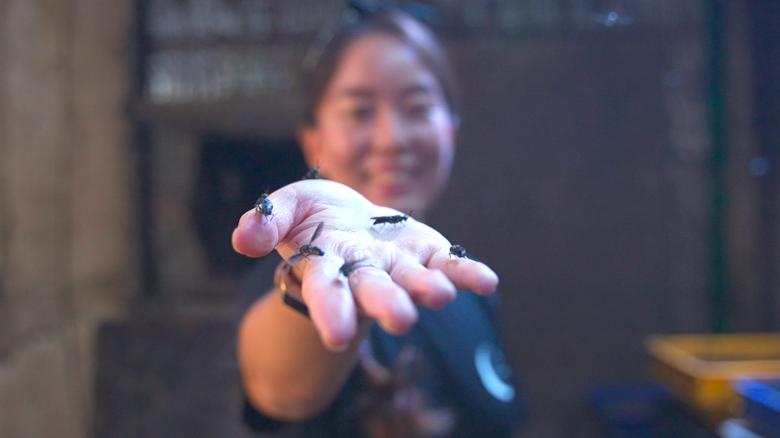This Singapore startup is using insects to turn trash into treasure

But she’s no ordinary farmer, and these aren’t ordinary animals. Chua and her partner, Phua Jun Wei, founded startup Insectta in 2017. They are battling Singapore’s food waste crisis with the help of an unlikely ally: the black soldier fly larva. ”The concept behind Insectta is that nothing goes to waste,” said Chua. “Waste can be reimagined as a resource if we change how we think about our production methods, and how we deal with waste.”In 2020, Singapore One of these biomaterials is chitosan, an antimicrobial substance with antioxidant properties sometimes used in cosmetic and pharmaceutical products. Insectta aims to eventually produce 500 kilograms of chitosan a day and is now collaborating with Singapore-based Spa Esprit Group for the use of its chitosan in its moisturizers. Insectta is also collaborating with face mask brand Vi-Mask, which hopes to use black soldier fly chitosan to make an antimicrobial layer within its products.Currently, Vi-Mask uses chitosan from crab shells in the lining of its face masks. The company says that the switch to insect-based chitosan is an environmentally friendly move, as Insectta’s chitosan is more sustainably sourced. A more sustainable sourceAt present, crab shells are one of the primary sources for chitosan, according to Thomas Hahn, a researcher with the Fraunhofer Institute for Interfacial Engineering and Biotechnology IGB in Germany. Hahn has studied insect-based chitosan production with chemical engineer and biologist Susanne Zibek. According to Zibek, chitosan could replace synthetic thickeners and preservatives in cosmetics. There is ongoing scientific debate about the consciousness of insects. But Phua said rearing black soldier flies is more humane and sustainable than rearing livestock, as insects need less water, energy and space to grow.Rather than running its own farms, however, Insectta plans to sell eggs to local black soldier fly farms, and collect exoskeletons produced by these farms to then extract the biomaterials.”We not only want insects to feed the world,” Phua added, “we want insects to power the world.”






